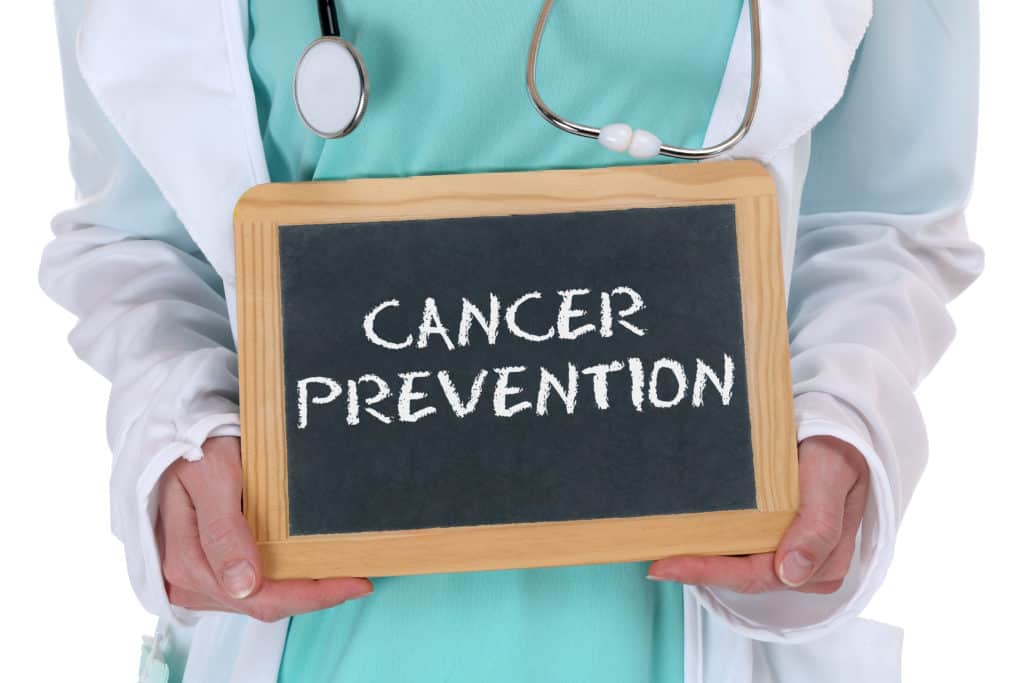There are things that everyone can do that can help them reduce the chances of developing cancer. While not all cancers are preventable, certain risk factors, if cut from your lifestyle, can help reduce risk of cancer. In this article, you will find information about the different cancers that can be prevented and what you can do to lower the risk of developing cancer.
Preventable Cancers
There are many preventable cancers, and the ways to prevent them most often come down to lifestyle. Some of the most common preventable cancers, accounting for two-thirds of the preventable cancer cases in the UK (Cancer Research UK, 2022), are:
In addition to the right lifestyle choices, it is crucial that you get regular medical check-ups, as plenty of cancers can be identified using routine testing. The earlier cancer is caught, the better the outlook for treatment and recovery.
Bladder Cancer
Bladder cancer is a common preventable form of cancer impacting 1 in 50 males and 1 in 133 females in the UK during their lifetime (Cancer Research UK, 2022a). The most common preventable factor is smoking. Bladder cancer can also be caused by exposure to drinking water with unsafe arsenic levels and exposure to certain chemicals in the workplace.
Breast Cancer
Breast cancer is the most common form of cancer impacting women in the UK, and it is believed that almost one-quarter of cases can be prevented (Cancer Research UK, 2022c). Most of the risk factors that can increase the chances of developing breast cancer are lifestyle related. Things you can do to reduce the risk of developing breast cancer include:
- Maintaining a healthy weight
- Not smoking
- Reducing or eliminating your alcohol intake
- Five portions of fruit and vegetable daily
- Being physically active
- Avoiding the use of hormones post-menopause
- Breast feed
There is also a link between breast cancer development and oral contraception, though this is significantly lower than other risk factors. Other risk factors that cannot be controlled include genetics and age, so getting regular check-ups if you have a family history of breast cancer is critical.
Cervical Cancer
Cervical cancer is one of the most preventable forms of cancer out there, with almost all cases of cancer being caused by infection. The most common cause of infection that leads to cervical cancer is human papillomavirus (HPV). Ways to prevent cervical cancer include:
- Regular cervical screening every three years
- Getting an HPV vaccine in your teens or 20s
- Not smoking
- Using condoms during sex
- Limiting male sexual partners
Lung Cancer
Most people nowadays, medical professionals or laypersons, recognise that smoking is the most common cause of lung cancer. The longer you go without smoking, the healthier your lungs will become, with your lungs becoming that of a non-smoker within 20 years. The vast majority of preventable lung cancer cases are caused by smoking, with working asbestos and other dangerous substances being another common cause.
Bowel Cancer
Bowel (colon) cancer is the most preventable cancer. Regular screening for bowel cancer can ensure that you will have minimal risk of ever developing it. The earlier bowel cancer is caught, the more treatable it is, and screening is often highly effective In addition to causes like age, genetics and other health issues, bowel cancer can be caused by:
- Unhealthy and fibre-low diet
- Being overweight
- Excessive alcohol intake
- Smoking
- Being inactive
Melanoma Skin Cancer
There are various forms of skin cancer, with melanoma skin cancer being the most serious. Accounting for 4% of new cancer cases in the UK each year, this form of cancer can be most effectively prevented by:
- Avoiding sunburn
- Staying out of the sun
- Covering your skin when outside
- Avoiding the use of tanning beds
- Applying sunscreen of at least 30SPF to all exposed parts of the skin
Kidney Cancer
Kidney cancer is relatively rare and can be prevented through maintaining a healthy weight, keeping your blood pressure normal, and not smoking. There is evidence to suggest moderate drinking can lower your chances of developing kidney cancer, though this can increase your chances of developing other cancers.
Stomach Cancer
Stomach cancer is relatively rare and most commonly caused by the H. pylori infection. Screening for and treating this infection as soon as possible is critical to mitigating the risk of developing stomach cancer. In addition, you can lower the risk of stomach cancer by quitting smoking, eating a low salt diet, maintaining a healthy weight, and drinking alcohol in moderation.
How To Prevent Cancer
There is no one way to prevent cancer, but lifestyle changes can make a massive difference. All of the risk factors mentioned above can be mitigated in some ways. Some of the best options available include:
- Quitting smoking
- Wearing sunscreen
- Eating a healthy, balanced diet
- Exercising regularly
- Cutting back on alcohol
It may help to assess your lifestyle to determine which risk factors you could eliminate and give yourself the best chance of avoiding cancer.
Foods That Prevent Cancer
Various foods can help prevent cancer, and many fruits and vegetables offer excellent antioxidant properties, fibre and nutritional value. They are also low-calorie options that can help you maintain a healthy weight. Garlic, broccoli, and berries are all excellent options to include in your diet. Getting your recommended five portions of fruit and veg per day is also critical for cancer prevention. Getting plenty of fibre-rich foods in your diet is also vital to reducing the risk of certain cancers (Cancer Research UK, 2022b).
Foods to cut from your diet include processed meats and sugar, which can contribute to an unhealthy weight that is a risk factor for many cancers. Alcohol should be consumed in moderation or eliminated from your diet entirely, as it is a significant risk factor for several common cancers (Link, 2017).
Apart from lifestyle changes and improved diet, the best option for early detection and prevention/risk reduction of developing cancer are regular health screenings. By undergoing regular health checks, you will be able to catch cancers at their earliest stages before they show any symptoms and be able to understand your health level and take effective steps to improve it if needed.
Book A Cancer Screening
Overall, cancer is caused by various factors, both preventable and unavoidable. If you want to limit the risk of developing cancer, some of the key things to do include living a healthy lifestyle – maintaining a healthy weight, not smoking, avoiding excessive alcohol, and eating well.
At Echelon Health, we provide a range of health assessment packages that include a number of medical tests and scans, from blood tests to MRI brain scans. You can choose from a number of packages, including a core cancer package. This package contains:
- Blood test
- CT abdomen scan
- CT pelvis scan
- CT virtual colonoscopy
- Thyroid ultrasound
- Testes/ovaries ultrasound
- MRI prostate
- Digital mammogram
Our Core Cancer package is created with the intent of detecting the most common cancers before they can develop into something more serious. Screening is critical to help you manage your risk of cancer, so if you’re concerned or want the peace of mind of knowing all is well, book a cancer screening with one of our expert medical professionals today here at Echelon Health.
Alternatively, if you want full peace of mind about cancer and other diseases, we have our flagship Platinum Assessment which, through the use of the best imaging technology available, can help us detect up to 92% and 95% of preventable causes among men and women respectively. The full list of our assessments can be found on our website, or if you would like to have a chat with us you can give us a call at 020 7580 7688.
Sources
Cancer Research UK (2022). Statistics on preventable cancer. Available at: https://www.cancerresearchuk.org/health-professional/cancer-statistics/risk/preventable-cancers accessed 07/06/2022
Cancer Research UK (2022a). Bladder cancer statistics. Available at: https://www.cancerresearchuk.org/health-professional/cancer-statistics/statistics-by-cancer-type/bladder-cancer accessed 07/06/2022
Cancer Research UK (2022b). Diet and cancer. Available at: https://www.cancerresearchuk.org/about-cancer/causes-of-cancer/diet-and-cancer accessed 07/06/2022
Cancer Research UK (2022c). Breast cancer statistics. Available at: https://www.cancerresearchuk.org/health-professional/cancer-statistics/statistics-by-cancer-type/breast-cancer#heading-Four accessed 07/06/2022
Link (2017). 13 foods that could lower your risk of cancer. Available at: https://www.healthline.com/nutrition/cancer-fighting-foods accessed 07/06/2022



